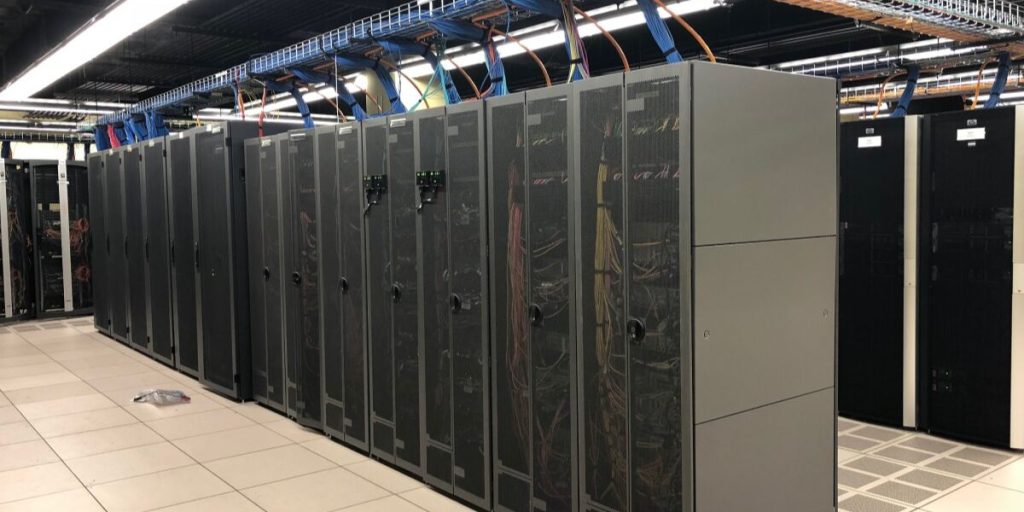
Kentucky is joining the surge in data centers.
On Thursday, developers working with Virginia-based PowerHouse Data Centers revealed plans to construct a sizable “hyperscale” data center in Jefferson County.
It will be the state’s first of its sort. The state legislature’s tax incentives from the previous year helped to drive the transaction.
The facility will require 400 MegaWatts of power, which is an enormous amount. About 275,000 houses may be powered with that amount. The facility is directly inside the power boundaries of Kentucky Utilities, the biggest private power provider in the state, and Louisville Gas & Electric.
PowerHouse is collaborating on the project with Poe Companies, a real estate company in Louisville.
The unveiling of the project coincides with a rise in US data center demand. Organizations seeking additional capacity to support their artificial intelligence (AI) endeavors are establishing data centers all around the nation. In some parts of the nation, it’s driving a building boom.
Last year, Meta, the parent company of Facebook and Instagram, revealed plans for a $800 million project in Jeffersonville, Indiana, which is located directly across the Ohio River from Louisville.
According to Louisville television station WDRB, the PowerHouse/Poe site will be located in the village of Shively in Southwest Jefferson County, taking up approximately 153 acres close to Jefferson County’s Rubbertown industrial district. According to developers, the facility would create up to 1,000 construction jobs in addition to “hundreds” of full-time jobs.
A press statement states that the first building will be operational by late 2026, with construction starting in 2025.
The term “hyperscale” mostly describes the project’s magnitude. “Computing environment and architecture that is designed to provide extreme scalability to accommodate workloads of massive scale” is how IBM defines the word.
The site does not yet have a verified tenant. They are “in talks with a handful of well-known technology companies,” venture officials told WDRB.
In the press release, PowerHouse CEO Doug Fleit stated that Louisville was a desirable location for such a site because of its closeness to the river and reasonably priced electricity.
According to Fleit, “Louisville offers everything hyperscale users need – water, connectivity, timely and dependable power at very attractive rates, and a business environment that encourages more hyperscale growth in the region.”
Robert Stivers, a Republican from Manchester who serves as Senate President, made a joyful statement.
Massachusetts Officials Investigate Bird Flu After Dozens of Dead Geese Discovered
“I worked closely with Secretary Jeff Noel from the Kentucky Cabinet for Economic Development and top private sector leaders to craft and pass groundbreaking legislation that will spark job creation and expand the tax base, which creates more revenue,” Stivers stated. “This project is a game-changer, driving long-term economic growth in our major metropolitan center and boosting Kentucky as a regional business hub.”
In the version of the bill that was filed in the Senate, the tax incentives were carefully structured to apply only to projects based in Louisville that had an investment of more than $450 million.
For a period of fifty years, the incentive law exempts purchases of computer equipment and other items connected to information technology from the sales tax.



